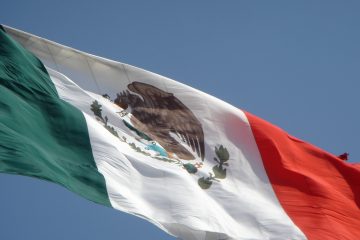
Confronting Mexico’s New Black Market in Fuel Theft and Trafficking
Inaction in politics can be comfortable. Politicians might opt for hand wringing to avoid confronting the consequences of their actions, or, in the worst-case, to hide their own complicity. Mexico´s new administration has been in the headlines recently for doing just the opposite: On December 27th of last year, president Andrés Manuel López Obrador announced that his government would confront the large-scale theft of fuel that affects Petróleos Mexicanos (PEMEX). Since then, there have been widespread news of lines and fuel shortages. The situation escalated further on January 18 with the horrific news of 73 people killed and another 76 gravely injured from the explosion of a fuel pipeline in the state of Hidalgo. Mexico´s New Black Market What the …

The War on Drugs’ Corroding Effect on Mexican Democracy
If it is part and parcel for democracies to (1) protect individual rights, (2) safeguard its citizenship from serious abuses of power, and (3) produce fair and reasonable laws which are impartially enforced, then we can assert that the misnamed “war on drugs” severely corrodes Mexican democracy. In general, the “war on drugs” is a punitive strategy which aims to increase drug prices and punish consumers, under the assumption that attacking supply can create a world without drugs. In Mexico, what is referred to as the “war on drugs” escalated in 2006, when then-president Felipe Calderón started “a frontal war against organized crime”, allegedly, to “keep drugs from reaching our children”. Calderón did so right after a highly competitive election …

Mexico’s Election: The Good, the Bad and the Ugly
Come Sunday at 6 p.m. (GMT-5) Mexican citizens will have had elected not only a new president, but also over 3,400 new public officials. Being the largest electoral process in Mexican history, this third federal voting round in the post-transition era determines not only Mexico’s future, but —along with several other elections in the region— it also helps configure the ideological composition of Latin America. Instead of providing an overview of the contenders or discussing the trade-offs and the potential risks of the populist left, I will a) assess the campaign, b) zero in on the topics to look out for during and after election day and lastly, I will also c) identify key challenges for the future. My assumption or rather …

From Scoring Goals to Winning Votes: How Three Footballers Strike Out as Politicians
George Weah’s recent election as President of Liberia is not only noteworthy for being the first peaceful transition of power in the country since 1944. His victory is also “a lesson in how sports fame can help propel figures with humble beginnings to positions of great importance.” Weah is not the only former striker who has transitioned from scoring goals to winning votes. While there is no shortage of lists of former players-turned-politicians, a closer look at three of the game’s most popular players reveals how they have leveraged their fame, wealth and appeal to mount successful populist campaigns. George Weah: President of Liberia Playing for Paris St Germain, AC Milan, Chelsea and Manchester City, George Weah is the first …

How do editors choose which human rights news to cover? A case study of Mexican newspapers
The mass media forms a key channel through which instances of human rights violations are made public. However, the media can only publish a small proportion of stories, as media practitioners are required to sift through wider information, deciding what to cover. A media ethnography conducted in Mexico in 2006, before and after the presidential elections, can illuminate what journalists are trying to do in their human rights coverage and how their outlooks and contexts condition the incidents that are covered.
Parts of the Mexican media played a significant role in the country’s democratic transition since the 1976 Tlateloco Massacre, resulting in a general shift among journalists away from a cozy and financially lucrative relationship with the government. This led to the growth of new ‘market-oriented’, as opposed to ‘state-oriented’, newspapers. Both usually have a human rights beat investigating citizens’ complaints about infractions committed by state institutions. This often involves collaboration with the independent human rights commissions established in the 1990s.
Within this context, this case of Mexico suggests the mixture of outlooks and contexts affecting processes of extracting human rights news from wider information can be put into four categories: newsworthiness, journalistic aims, economic aims and political aims. A human rights story is more likely to be published by a newspaper the more it corresponds to these criteria.
The first factor, newsworthiness of a story, appears to be tricky to define; many of the editors interviewed claim it was a ‘sentiment’ that was ‘uncertain’, ‘improvised’ or ‘arbitrary’. Still, their explanations suggest some common criteria for newsworthiness. Firstly, published stories generally concerned incidents where human rights were transgressed rather than respected. One editor of El Universal explained ‘human rights are there to be taken care of … Therefore it is news when they are violated.’ Other aspects of newsworthiness included novelty, exclusivity, impact, representativeness, and timeliness. In particular, the potential political impact of a violation was considered greater, and therefore more ‘newsworthy’, if it involved multiple victims or was particularly severe, as in the case of a 13-year-old girl who was denied a legal abortion after she was raped. Editors also sought to publish stories that were representative of wider problems, such as inequality. The idea, as an editor of El Universal put forward, was ‘that when we talk of inequality or poverty, people have a point of reference’.









